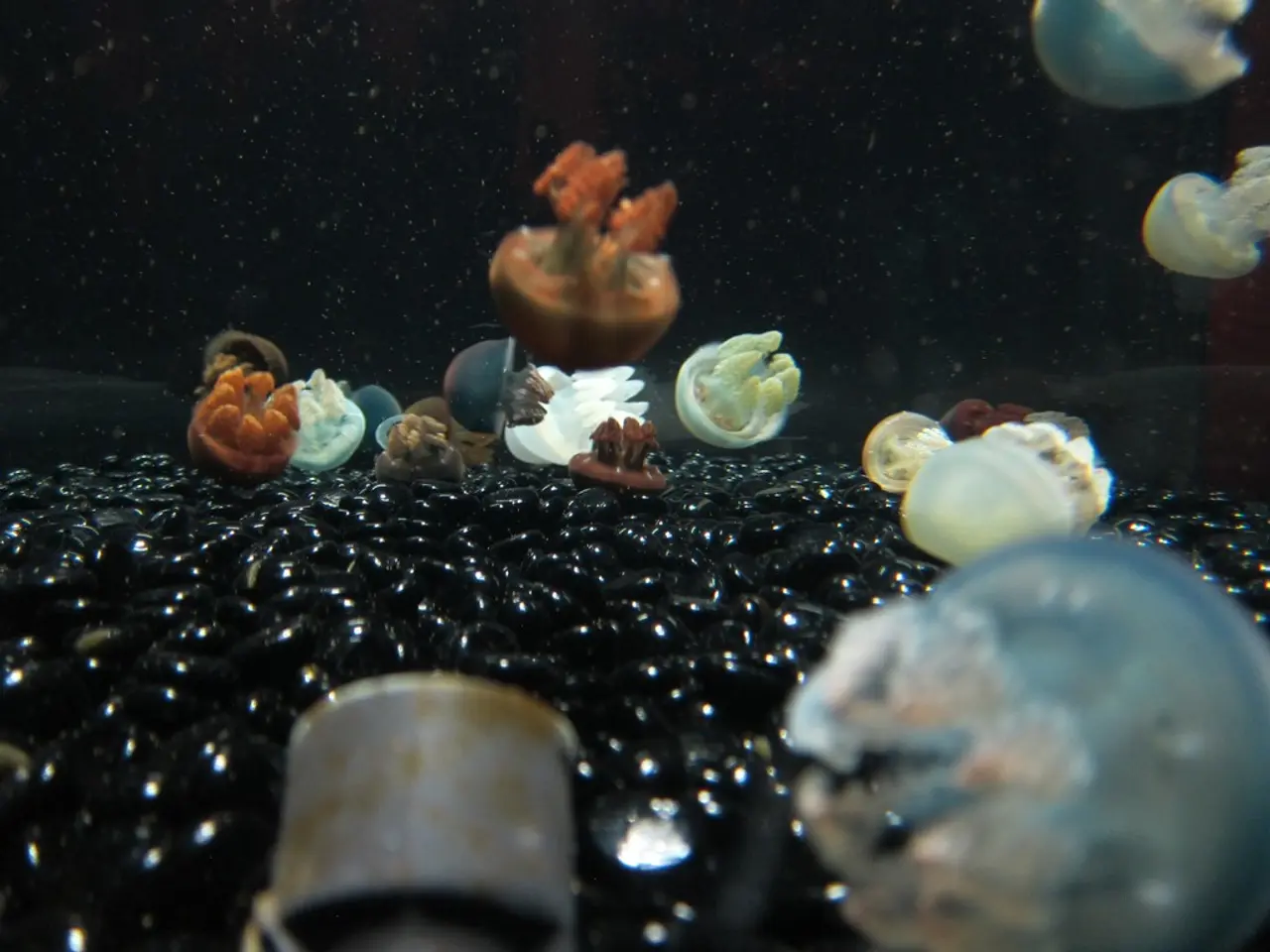Nuclear power plant in Gravelines, France, temporally halted due to jellyfish blocking its cooling system.
Massive Jellyfish Swarm Shuts Down Four Reactors at France's Gravelines Nuclear Power Plant
The Gravelines nuclear power plant in France faced an unusual disruption on August 10-11, 2025, as four of its six reactors were forced to shut down due to a massive swarm of jellyfish clogging the cooling system's water intake filters.
Located on the North Sea coast, Gravelines is one of France's largest nuclear facilities, capable of producing a combined 900 megawatts of electricity. The incident occurred in the plant's cooling system, which draws water from the North Sea through a canal.
The jellyfish involved in the incident are not harmful to humans, as they lack a venomous sting. However, they caused automatic reactor shutdowns as a safety precaution when they surged into the filter drums of the pumping stations.
The filter pumps at the Gravelines nuclear power plant were undamaged but required cleaning for operations to resume. EDF, the plant operator, confirmed that the incident posed no risk to plant safety, personnel, or the environment.
This event is part of a growing pattern of jellyfish-related disruptions at nuclear power plants globally, linked to rising ocean temperatures and ecosystem changes due to climate change. Similar incidents include the 2021 emergency shutdown of Scotland's Torness nuclear power plant and the 2013 closure of Sweden's Oskarshamn nuclear plant caused by jellyfish clogs.
Research suggests a possible link between thermal discharges from power plants and increased jellyfish blooms, although more study is needed to fully understand this relationship. The North Sea and surrounding waters have seen a notable increase in jellyfish populations in recent years, driven by warmer water temperatures and the spread of invasive species like the Asian Moon jellyfish, which was first detected there in 2020.
The Gravelines plant’s cooling water comes from these increasingly jellyfish-rich waters, making it vulnerable to such disruptions. EDF has not confirmed whether the Asian Moon jellyfish was responsible for the latest incident at Gravelines.
The shutdown temporarily halted all power generation at the site, as the remaining two units were already offline for scheduled maintenance. Reactors 2, 3, and 4 shut down automatically just before midnight due to "massive and unpredictable" numbers of jellyfish filling the pumping station's filter drums. Reactor 6 was taken offline a couple of hours later.
The teams are working to restart the affected reactors as soon as possible. The Asian Moon jellyfish, an invasive species, is known to flourish in calm, plankton-rich waters and has caused disruptions at nuclear plants in China, Japan, and India.
This incident highlights the growing operational challenges nuclear plants face from marine ecological changes influenced by climate change and invasive species dynamics. As the world grapples with the impacts of climate change, such incidents underscore the need for continued research and adaptive strategies to ensure the safety and efficiency of nuclear power generation.
- The incident at Gravelines nuclear power plant, where four reactors were shut down due to a massive swarm of jellyfish, could potentially be linked to climatechange, as the North Sea, from where the plant's cooling water comes, has seen an increase in jellyfish populations due to warmer water temperatures and the spread of invasive species like the Asian Moon jellyfish.
- Recent research indicates a possible connection between power plant's thermal discharges and increased jellyfish blooms, which could have implications for the environmental-science sector and theindustry's efforts to mitigate disruptions caused by such creatures.
- The financial implications of the shutdown are not yet clear, but the energy sector will need to consider the impact of climate-change-induced changes in marine ecology on the reliability and safety of nuclear power generation, and invest in research and adaptive strategies to ensure continued operational efficiency in the face of these challenges.




